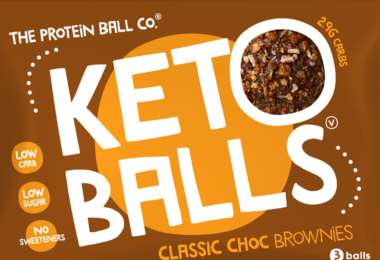One of the main worries for any parents is their baby’s diet; it is a vital aspect of their upbringing as we try to make sure that they receive all the essential nutrients for a healthy postnatal life.
In the early stages, they just need milk, which is simple enough, but when they’re about six months old they are usually introduced to more solid foods – this can be a daunting change for any parent, let alone new ones.
It is normal to expect a regime of sorts when it comes to the health of your baby; you’ll want to know exactly what to do and when to do it. There is a natural comfort in knowing for sure what the best course of action is when it comes to your baby, but this fear actually leads us to seek advice from sources which aren’t the best, such as family members who have the best intentions at heart but whose knowledge is outdated. This, in turn, leads to certain myths when it comes to giving your baby the right kind of food.
A meaty bite
A baby’s first taste of “real” food is a major milestone for new parents (as well as the baby, of course). Traditionally speaking, soft foods such as rice cereal are considered to be ideal, as they are full of iron and zinc, but that shouldn’t be where you stop! Meat is obviously a great source of protein and zinc. Serve it in a stew, cooking it until the meat is soft and is coming off in strips, and mix it up with other similarly gentle vegetables for a balanced treat.
The reason meat isn’t usually seen as “normal” baby food is because it can cause allergic reactions and the same fear applies to fish, which is a great source of not only protein, but also provides vitamins and essential fats such as DHA, which is a key component in supporting brain and eye development on top of a healthy immune system. Dr Ari Brown, author of Baby 411: Clear Answers and Smart Advice For Your Baby’s First Year, says that giving your baby meat as their first food is a perfectly healthy choice, just make sure enough time is allowed to check for allergic reactions.
The allergy tree
This brings us to another fear that parents often exhibit: that babies are more prone to allergies. Just because your baby has a certain reaction to food, doesn’t necessarily mean he or she is allergic to it. People tend to confuse the two, ending in a baby not being able to enjoy the benefits of various foods which are good sources of nutrients. According to experts, the top five food allergens are peanuts, egg whites, shell fish, fish and tree nuts (such as cashews and walnuts). They recommend waiting until kids are three years old before these are introduced for high-risk families, which would mean a history of such allergies.
If allergies are not prevalent in your family, that safety step is not usually required. Though it should be mentioned when it comes to peanuts, it is recommended you hold off until the age of three regardless.
Coming back to milk, you may think your baby is allergic to his/her mother’s milk. This is a myth often exaggerated due to the fact that babies sometimes spit up during breastfeeding, or they be actually be allergic to something the mom herself is eating, but babies are never allergic to their mother’s milk, so rest assured on that front. Plus, if your child is being breastfed, don’t worry about keeping him/her hydrated. During the first six months, breast milk is the only fluid your baby will require and it is recommended that water isn’t introduced until they start eating solid foods.
Sugar and spice
The biggest myth is perhaps that sugar makes not only your baby, but any child or even adult, hyperactive. Studies conducted by various reputable organisations and universities have debunked this myth, including a test which showed the psychological aspects of the misconception. Parents who were told their children had been given sugary foods rated their children as being more unruly, despite both sets of kids receiving the same non-sugary food.
Flavourful food isn’t bad for your babies either. Taste palates are not exactly hereditary, but if mummy prefers richer food such as curries and ate them during her pregnancy, there’s a chance her baby likes the same flavours. The notion that it’s only healthy for babies to eat bland foods is a long-standing myth that should be ignored.
Myths such as these will, of course, always persist. Thankfully however, there is research being continuously conducted that looks out for babies’ well being, when it comes to the right diet. Make sure that you do your research well before introducing any food to your baby, but don’t be afraid to try new things just because your second cousin thrice removed once told you that rice pudding is the only way to go! Bon appètit!








